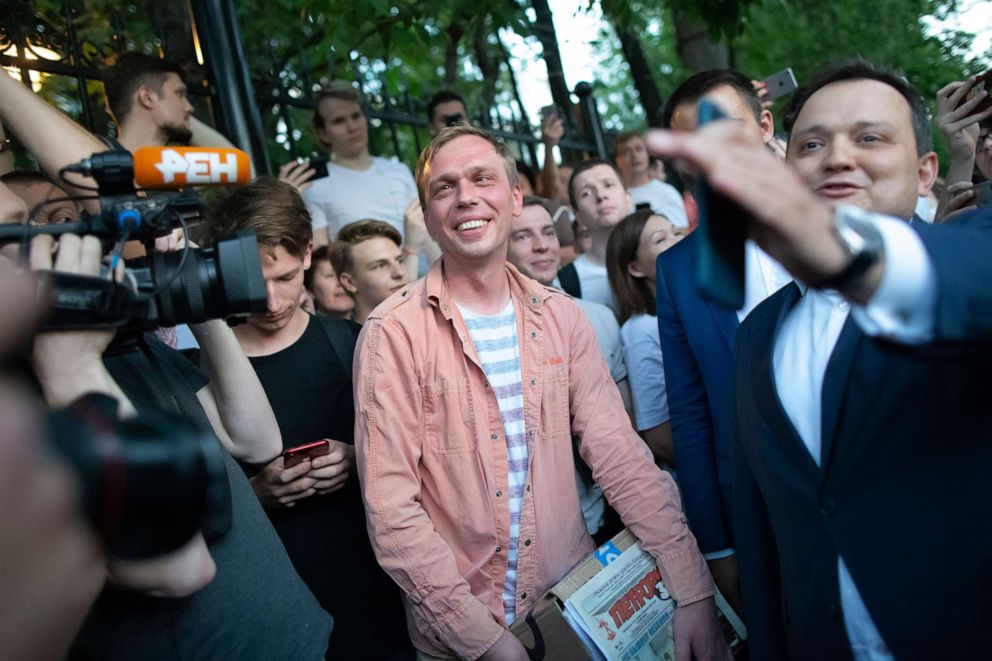After backing down over journalist, Russian police arrest hundreds at protest
Crackdown followed a remarkable retreat over Ivan Golunov
Moscow -- A day after Russian police dropped charges against a prominent journalist following an unprecedented public outcry, police in Moscow arrested more than 400 demonstrators who took to the streets to demand accountability and call for the release of other prisoners.
The protest was announced before police abruptly dropped drug charges against Ivan Golunov in the face of mounting pressure and an unprecedented show of solidarity by Russia’s journalists.
At least two thousand people took to the streets, and police moved in aggressively to arrest hundreds of them, among them well over a dozen independent journalists. The arrests suggested that, despite their remarkable retreat over Golunov, Russian authorities have no intention of loosening controls over political opposition.
Golunov’s release was an extraordinary reversal by Russian law enforcement.
A prominent reporter for the popular independent news site, Meduza, Golunov has written on corruption and shady business practices among officials and organized crime, was arrested last Thursday in Moscow. Police claimed they had found bags of the drug mephedrone on Golunov's person and during a subsequent search of his home, and charged him with intention to distribute, an offense that carries a potential 10 to 20-year prison sentence.

Golunov accused the police of planting the drugs on him, and the case began to rapidly unravel. On Tuesday, authorities said they were dropping the charges and that the Moscow police chief who was overseeing Golunov’s case, as well as the head of the city’s narcotics division, had been fired.
“Nothing like this has happened in Russia for decades,” wrote Novaya Gazeta, a celebrated investigative newspaper that has seen authorities repeatedly stymy investigations into the murders of several of its own journalists.
“The authorities have in effect broken their own unwritten rules—not to give into pressure and not to give up their own,” the leading newspaper, Vedomosti wrote.
But Wednesday’s mass arrests were seen as a return to reality.
Observers said that while the authorities backing down over Golunov was hugely significant, it didn’t represent any radical shift in how the Kremlin responded to the opposition. They noted that an exceptional combination of factors seemed to have produced Golunov’s release, and most observers believe his arrest had not been desired by the Kremlin in the first place.
Prior to his arrest Golunov was reporting on efforts by corrupt mid-level officials to take over a funeral business and had been receiving threats, Meduza reported.
Andrey Kolesnikov, a senior fellow at the Moscow Carnegie Center, wrote in Forbes that while the case was a “watershed” for Russian society, it only required a “small concession for authorities.”
“Don’t expect the authorities now to sit idle,” he wrote.




